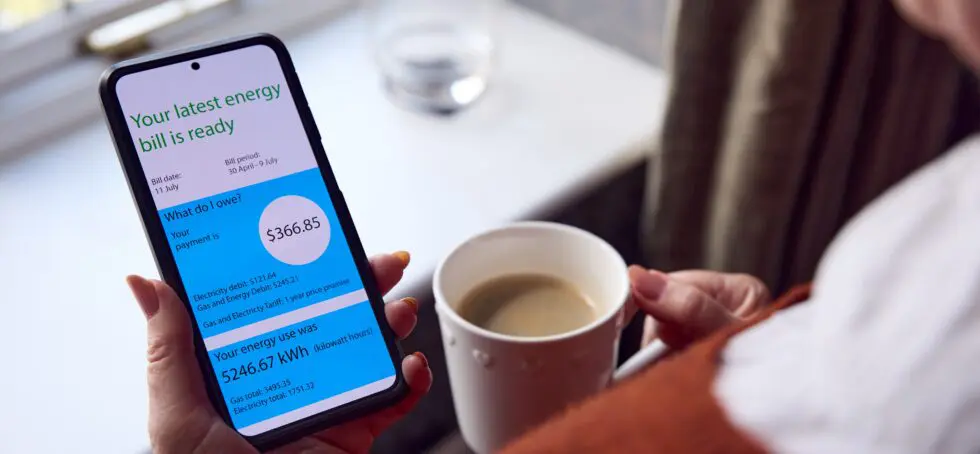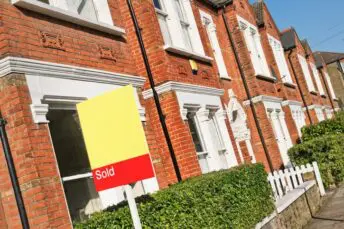Homeowners will be offered more cash to install heat pumps in their homes, the government has announced. And there’s good news if you have Buy to Let properties too: plans to force some landlords to increase the energy efficiency of the properties they rent out have been scrapped. But while that may save landlord cash, it’ll cost their tenants more in higer energy bills. We take a look….
The range of announcements were made by the Prime Minister today include:
- The Boiler Upgrade Grant will be increased by 50% to £7,500 to help homeowners who want to replace their gas boilers with a low carbon alternative.
- Landlords will no longer be forced to pay to make their homes more energy efficient and reach an EPC rating of C by 2025.
- Also, the deadline to ban the installation of oil and LPG boilers and new coal heating for off-gas-grid homes will be delayed until 2035, instead of phasing them out from 2026.
- Plus, an exemption to the phase out of gas boilers in 2035 has been announced, which will mean an estimated one fifth of households who will struggle to make the switch to heat pumps or other low-carbon alternatives won’t have to do so.
The government says this offers a ‘proportionate and realistic path to reach net zero by 2050’. However critics fear it makes meeting the target increasingly unlikely.
So what does this mean for homeowners?
This is good news if you’re planning to install a heat pump as it means you can get more cash towards the costs. Heat pumps capture heat from the outside and move it into your home. While it uses electricity in order to do this, the amount of heat it provides your home should be much greater than the amount of electricity the system uses.
However, take up rates have been low for a number of reasons, not least because heat pumps are expensive to install (even with a heat pump grant). According to Checkatrade, supplying an air source heat pump* costs an average of £7,000, while installing it costs an average of £8,000. Plus, if you need to upgrade to larger radiators, this could cost £2,000 – £5,000. And there may be additional costs too.
Plus, you’ll need a highly insulated house to get the full benefit of them – and doing this can also be expensive. Also, many people are yet to be convinced about how much money they’ll save you on your energy bills.
Hence why the Prime Minister today said, “We’ll never force anyone to rip out their existing boiler and replace it with a heat pump. You’ll only ever have to make the switch when you’re replacing your boiler anyway, and even then, not until 2035.”
He continued, “And to help those households for whom this will be hardest I’m introducing a new exemption today so that they’ll never have to switch at all.”
Will this save landlords £££?
Many landlords had been bracing themselves to have to pay to increase the energy performance of the properties they let out. Under the Minimum Energy Performance of Buildings Bill the government had proposed increasing the current minimum EPC or Energy Performance Certificate rating of E to C for new tenancies from 2025 and for all rental properties by 2028, where practical, cost-effective and affordable.
Under current rules if you cannot improve your property to EPC rating E for £3,500 or less, you were been able to register an ‘all improvements made’ exemption. Under the proposed EPC changes, this threshold had looked set to increase to £10,000.
But in this new announcement the government said it would ‘scrap policies to force landlords to upgrade the energy efficiency of their properties. And instead they will be encouraged to ‘do so where they can’. Landlords will no longer have higher EPC targets to meet.
‘Welcomed by some – but we need more action’
Paula Higgins, chief executive of the HomeOwners Alliance, says, ‘Many homeowners are being pushed to the brink financially at the moment, especially those who have seen their mortgage payments sky rocket. So offering more money for people who want to install heat pumps as well as taking the pressure off the need for investing in heat pumps for those who don’t want to or who can’t afford to is welcome.
‘But we do need to solve the problem of the UK’s leaky homes. And I think the government needs to go back to basics. The current options for homeowners are confusing.
‘Without a clear path to energy efficiency and financial support to go green we’ll continue to free-fall towards 2050. We all want lower energy bills, but we don’t want to be financially-crippled en route.
‘We’d like to see more support – in the form of education and grants. So we’re calling on the government to use this delay to do more on educating homeowners on what the best options are, in terms of costs and practicalities – especially around which insulation projects we should be tackling first. We need more clarity but there seems to be an absence of a single strong source of information – this is something they can work with industry on. Homeowners also need more financial incentives to go green.
‘We were surprised that landlords who are currently letting the least energy efficient homes will no longer have to make improvements. Nearly a quarter of private rented homes are classified as “non decent” homes, with 11% reported as having problems with damp. It can’t be right that landlords aren’t being required to improve the living conditions for their tenants, who will be left footing the bill in higher energy bills or living in colder homes.’
What else was announced?
Under revised plans, the ban on the sale of new petrol and diesel cars will be pushed back for five years, from 2030 to 2035. Find out How much does it cost to charge an electric car and you can also compare the best EV energy tariffs and find the ideal tariff for charging your EV using our home EV energy tariff comparison tool.
Read our guide How to make your home more energy efficient.
*Figures relate to Air-to-water heat pump (5kw – 17kw)








